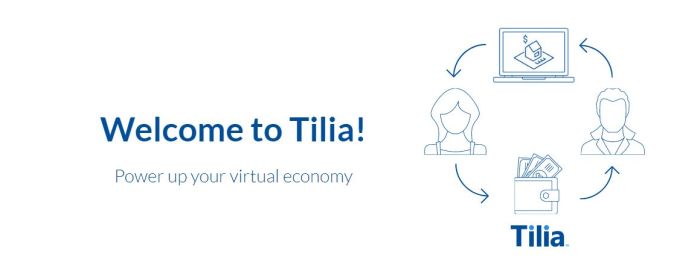
On Friday, April 26th, 2024, Linden Lab issued a pre-recorded Lab Gab session featuring the company’s Executive Chairman, Brad Oberwager (Oberwolf Linden) discussing the recent news concerning the acquisition of Tilia.io, the all-in-one payments platform established by Linden Lab in 2019 and which manages payment processing and cashing out for Second Life, by Singapore-based business-2-business (B2B) payments infrastructure firm Thunes, and which I reported on here on the acquisition.
At the same time, the blog post promoting the Lab Gab session provided further information on the upcoming Community Round Table event, first informally announced on April 19th, 2024.
The following is a brief summary of the Lab Gab session, offered as a quick reference summary for those interested. In addition, a brief summary of the Round Table event news is at the end of this article.
Lab Gab – Thunes and Tilia
General Points
[Video: 1:00-4:00]
- The news of the acquisition has been the subject of considerable commentary on the official forums and elsewhere, and the concerns voice are seen as “understandable”.
- Summary of Tilia (as clarification):
- A payments company which (for Second Life) allows users to use credit and debit cards and PayPal to buy Linden dollars; tracks the use of those Linden dollars and support the sale of those Linden Dollars, and allows users to cash-out the USD value of those Linden Dollars [after fees] to their bank accounts.
- However, Tilia is not the LindeX itself – that is separate technology specific to Second Life.
- In order to function under US regulatory law, Tilia requires money transmitter licenses (MTLs) [and is classified a Money Service Business or MSB]
- Running Tilia costs “millions and millions” of dollars to run, so the decision was taken to spin it out as a business in its own right so that it could support other customers / platforms, and thus alleviate some of the costs faced by LL.
- However, this has not worked out as well as had been hoped. While Tilia has a modest client list, it still relied heavily on Linden Lab to meet its costs, thus detracting for finances which could be used within Second Life.
- The decision was therefore made to seek an organisation which might – “under guidelines” acquire Tilia and make it profitable.
Tilia and LindeX Demarcation
[Video 21:00-23:24]
- The LindeX is a core part of the Second Life services, operated and maintained by Linden Lab.
- Tilia is a regulated entity / financial institution which:
- allows Second Life residents to hold US dollar amounts in an account;
- is allowed to run a credit card;
- is allowed to make pay-outs.
- As such, Tilia has no influence upon the LindeX, and has nothing to do with pricing, exchange rates, etc., that are the remit of the LindeX.
Requirements for Acquisition
- First criteria: any company acquiring Tilia must to commit to continuing to support Second Life, and the relationship between Second Life and Tilia is continued.
- Second criteria: what could any company acquiring Tilia bring to Tilia and thus to Second Life?
- Additional criteria included: how much were companies willing to pay; what would happen to Tilia staff, how fast could a buyer commit to completing the deal, etc.
Thunes – Who and Why
[Video: 5:35-8:18 and 11:00-12:30]
- Thunes is an international money movement company “missing one piece of a very interesting jigsaw puzzle” – the United States.
- In short, Thunes does not have MTLs to operate in the United States, although they had begun the process of applying for them.
- Brad Oberwager was introduced to the CEO of Thunes right at the time thought was being given to selling Tilia, and Thunes were starting on the road of applying for MTLs in the US.
- As both parties recognised the value in reaching an agreement, they were able to rapidly enter into an exclusive agreement for the sale of Tilia.
- Tilia gives Thunes the ability to operate in the United States in a more cost-effective manner than Thunes could otherwise achieve.
- Tilia (rebranded as Thunes) will effectively become Thunes’ centre of operations for expanding its business into the US.
- [As noted in my article] Thunes allows for a range of payment methods direct to customers in multiple currencies and to bank accounts, to virtual wallets, etc., with payment made in real-time. These are abilities Linden Lab has not been able to build-in to Tilia, as they are both complex and expensive.
- As Thunes integrates Tilia into its business model, Second Life will be able to access Thunes’ global network and services.
- [From 11:00] While there were other suitors for the deal, Thunes was the company with which Brad Oberwager felt most comfortable.
- Thunes also demonstrated they really want to invest into Tilia and grow it as a business.
- They weren’t simply looking at Tilia as a means to gain the MTLs.
- They didn’t see Tilia as a one-stop solution; rather it is a merging of capabilities neither Thunes nor Tilia have individually.
The 5-Year Partnership and Payment Options to Second Life Users
[Video: 8:23-10:59]
- The Thunes press release on the acquisition references a 5-year partnership with Linden Lab.
- This is in reference to the business agreement between Linden Lab and Thunes, which is “so good” for both, the two companies wanted for formalise it beyond just the acquisition of Tilia, thus meeting the first criteria within the Lab’s requirements for any Tilia acquisition.
- Any offer made for Tilia which had not provided the ability to meet the first criteria set by Brad Oberwager would not have been accepted.
- There will be “a lot of things offered” to Second Life users, but what cannot be committed to as this point in time is when these things might be offered, simply because Linden Lab will not be involved in the day-to-day management and development of Tilia, post-sale. However:
- “First on the roadmap” is better pay-outs and more pay-outs.
- There will also [likely] be more options for purchasing L$.
Regulatory Approval and When Will SL Users Notice the Transition
[Video 12:32-15:33]
- The acquisition is being handled as a reverse triangular merger [in essence, Tilia is both the subsidiary and the post-acquisition entity].
- The company will be rebranded, but all the technology and data will “remain Tilia”. As such, Second Life users may never know that the transition has happened; all the things that are important in terms of data are staying the same; all of the things in terms of the technology are “only going to get better”.
- What will change in Tilia’s owner, and this is where the regulatory approval comes in.
- MTLs cannot simply be handed over to a new owner when a company operating them is sold; the new owner has to be approved by the state (/territorial) regulator(s) responsible for issuing the MTLs.
- While regulators work at different speeds [and Tilia is licensed in 48 US states and territories), the process of gaining all the required approvals could take “from 5 to 9 months”.
- Confidence in a buyer being able to gain all this regulatory approval was another criterion for any sale of Tilia. Thunes give him that level of confidence, because it has gone through similar processes elsewhere in the world.
Benefits, User Data and Fees
[Video: 15:33-21:00]
- Proceeds of the sale will [obviously] go to the owners of Linden Lab. They will then determine how much of those funds are invested back into Second Life.
- The better Second Life (or aspects thereof) do, then the greater the amount of money put into Second Life. Cited examples:
- If SL Mobile sees high adoption and use, if it becomes successful on the Apple / Google app stores, etc., then more money could well be put towards further development / enhancement of the mobile product.
- If SL sees increases in retained new users as a result of initiatives, with the daily average usage of the platform increasing, then more money will go into further improvements in that area.
- A key point with the acquisition of Linden Lab [by Oberwager and Waterfield in 2020] is the company spending has increased, which has “proven to be a good thing” for the platform.
- User Data Security: An important point to note with the acquisition of Tilia is that Second Life user data is not changing hands.
- Tilia will have new owners and will be renamed, but the lock-down of Second Life user data resides in two places: Tilia (for financial information) and Second Life (actual user data).
- As a financial services company, Thunes is required to keep financial data as secure as it currently is with Tilia, and the data will not be removed from the current Tilia systems and moved elsewhere.
- User fees for payment processing, cashing out, etc.: Brad Oberwager has “no intention” to change fees “any which way” as a result of the deal with Thunes.
- Pointed out that LL does revise fees, but tends to do so in a manner intended to reflect the value of the services they provide. So, while fees for payment processing, etc., have increased in the past – they have generally been as a result of lowering fees elsewhere (e.g. in reducing land tier).
- Also made clear that while there are no plans to increase payment process / cashing out fees as a result of this deal, the LindeX is expensive to run and maintain – and so he is not saying there will “never” be any fee increases; changes will be made on a business benefit basis.
On The Future of Second Life
[Video 23:25-26:11]
- Views Second Life as a “moral imperative” – it is so good for so many in the world for so many reasons, that there is a moral need that goes beyond a financial reason to have Second Life continue.
- The only connection between selling Tilia and Second Life is that, under Linden Lab’s ownership was not “financially good” for Linden Lab, but is a potential financial powerhouse for Thunes.
- The Thunes deal has gone ahead purely because it is good for Linden Lab, for Second Life and for Tilia and its employees; therefore there is “nothing negative” about the deal.
- He remains fully supportive of Second Life, and – per the earlier examples – willing to put the money raised from the sale back into Second Life.
Round Table Update
- As per the original April 19th informal announcement, the Round Table event will take place on Monday, May 20th, 2024, commencing at 09:30 SLT, and will be the first in a series of such events, which are defined as:
An opportunity to connect directly with our top executives, share your input, and discuss ideas on enhancing Second Life. This initiative represents another step in our efforts to improve our community interactions, ensuring that your voice is more directly heard and valued.
- The location for the event has not (at the time of writing) been stated, but will be announced “closer to the date”.
- This first Round Table will feature Linden Lab Executive Chairman Oberwolf Linden and Senior VP of Product & Engineering Grumpity Linden. Plus:
- The session will include further discussion of the above Tilia acquisition, and on upcoming Linden Lab / Second Life Policy updates.
- There will be an open Q&A portion of the event (which is not for airing individual support issues or personal grievances and subject to the SL Community Standards.
- In addition, questions and / or feedback can be provided to the Leadership in advance of the event using this anonymous form.
- Future Round Table events will feature other Lab executives participating on a variety of topics, and the scheduling of these events will likely vary to be more accessible to other time zones.
- Please see the official blog post for more.






